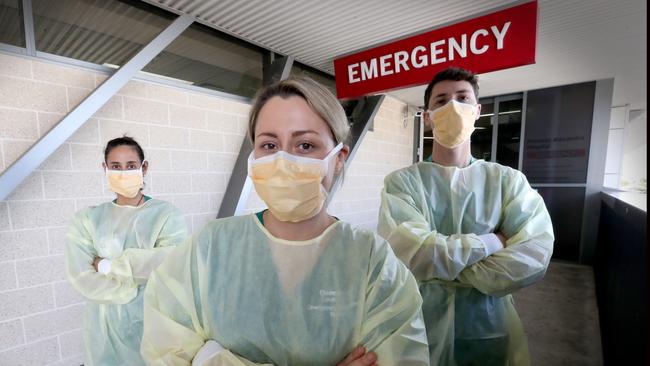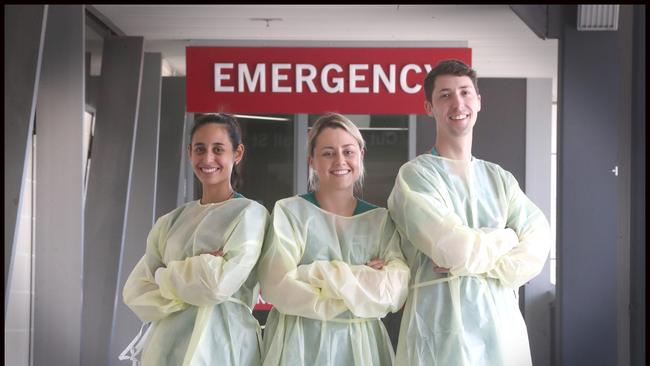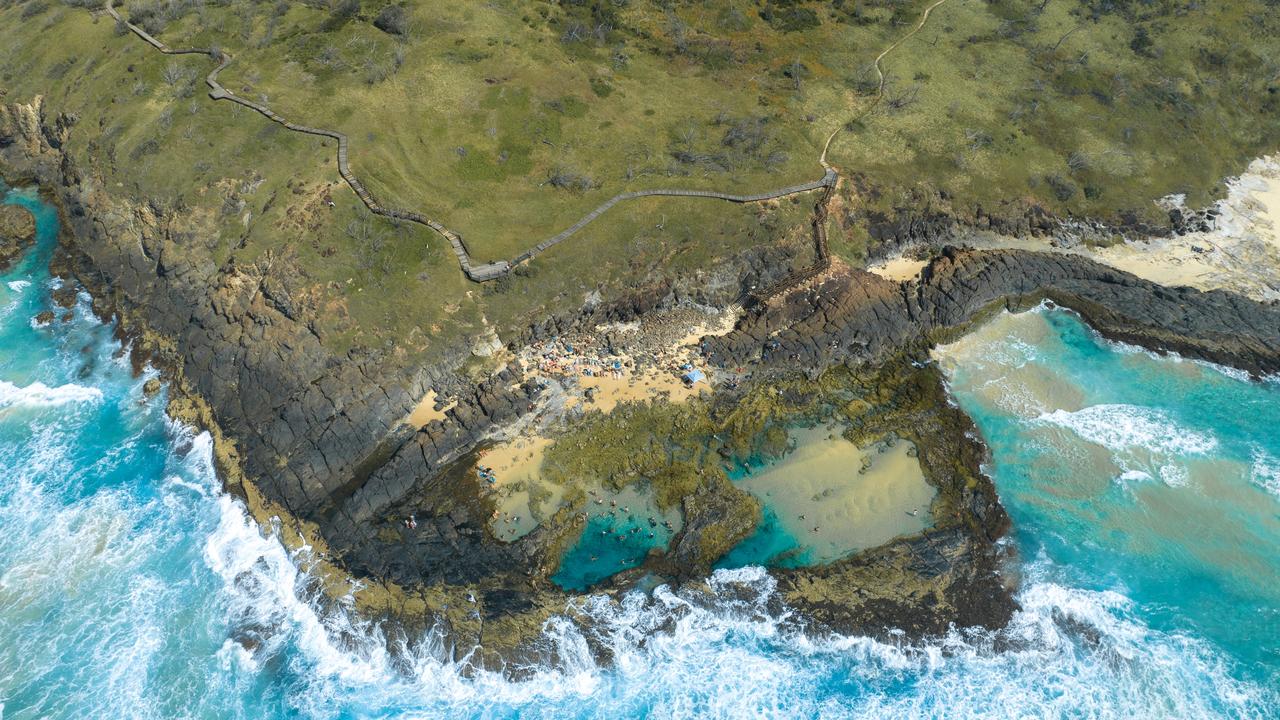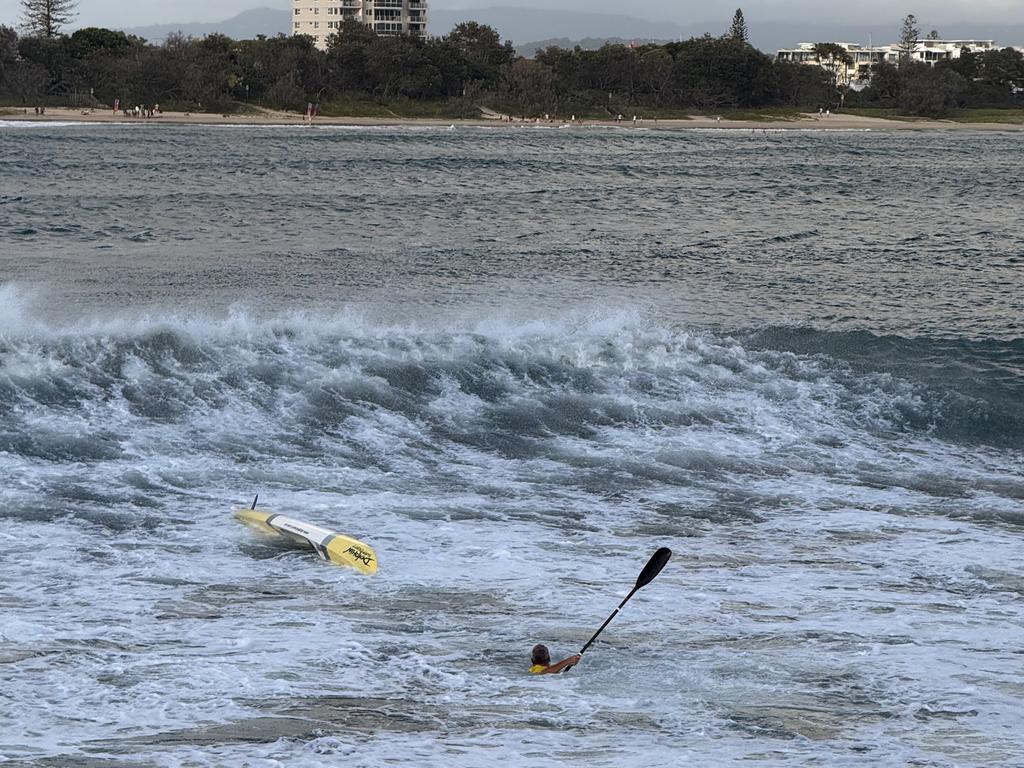What it’s like to work on the COVID-19 frontline
We’ve spoken to some of the amazing hospital workers who are helping Queensland patients with coronavirus battle the deadly illness.

QLD News
Don't miss out on the headlines from QLD News. Followed categories will be added to My News.
The medics in the trenches of Queensland’s war against COVID-19 are surprisingly fresh-faced and have a cheeky sense of humour.
There is nothing about the demeanour of these frontline hospital workers that shows fear or uncertainty even though they are in an unprecedented situation, exposed every single day to patients who could be carrying the coronavirus.
Like soldiers they buoy each other with laughs and optimism. They are well aware the full force of the viral enemy is yet to come.
Claire Ward, is 36 and acting clinical nurse consultant with the virus team at Princess Alexandra Hospital in Brisbane. She is one of nine medics in the PA’s fever clinic, where they could see up to 190 patients a day.

This is a team ready to do whatever it takes. They will avoid elderly relatives for months and those with kids are braced for the reality that one day they may have to isolate from their little ones.
“There has been no training for this kind of thing. Our learning curve is unbelievable and we are learning ultra fast. Through our experiences we have been building a model of care for fever clinics,” Ms Ward said.
John Ash, 30, is also an acting clinical nurse consultant with the PA team. Cool, calm and collected, he admits he is anxious.
“I’m not scared but definitely anxious but I know that the hospital is putting things in place to make sure we can cope with rising confirmed cases. We are organising extra ventilators and prepping for the worst,” he said.

Sarah Borg, 32 is an acting nurse educator in this groundbreaking area of medicine. She is small in stature but will make the biggest of sacrifices if she ever takes ill by isolating from her two young children.
“I already have a protocol of making sure I don’t touch the kids until I have showered. I practice safe procedures at all times. I have told my parents I won’t see them for the next six months or so and they are fine with that. Thank goodness for today’s social connection technology,” she said.
But social media has pitfalls in crises, Ms Ward says.
“There are so many things on social media that spark panic in people and that can be why we end of seeing some people in the clinic with no more than a sniffle,” she said. “We remain calm knowing that we are as well prepared as we can be and learning from the mistakes in other countries.”
While patients turn up to the clinic frightened that they have symptoms, John said they have not experienced any anger or backlash.
“There has been frustration but thankfully never aggravation. It’s important for us to be allowed to do our job to help the patients,” he said. “The only thing that does get us annoyed is when people think it is OK to take our supplies like masks or sanitisers.”
Premier Annastacia Palaszczuk is concerned for her health workers and urges Queenslanders to have patience, be polite and be kind.
“With the threat of COVID-19 only increasing across our communities it is imperative we continue to fully support and respect those health heroes on the frontline,” she said. “Every day, they are getting up and going to work to protect you and provide care for you and your family against the virus. They dedicate their lives to helping and caring for their fellow Queenslanders and they do not deserve to be abused or treated poorly.”



